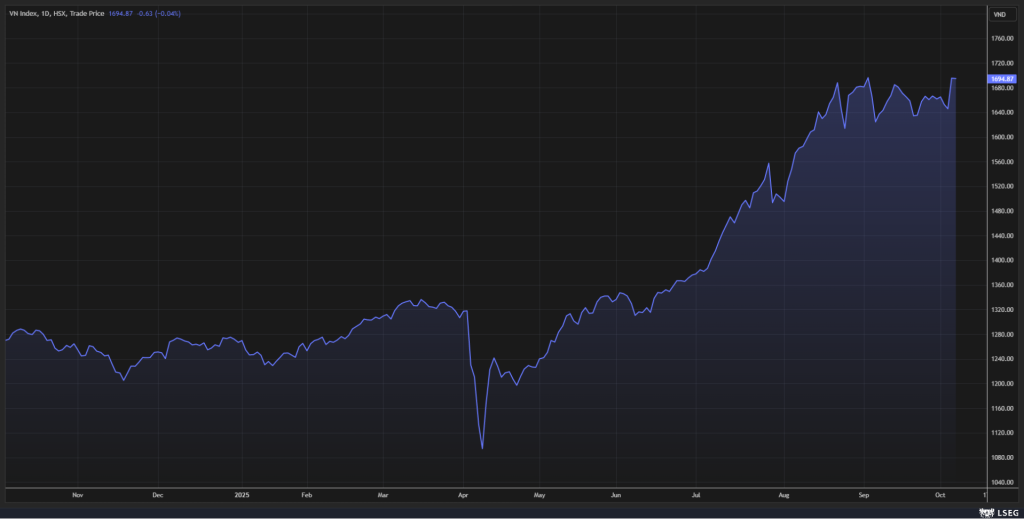Vietnam is on the verge of achieving an emerging-market status by FTSE Russell, a shift that reflects years of regulatory reforms but may not trigger further gains in its already buoyant equity market.
The country has steadily moved closer to satisfying the requirements for reclassification from frontier to emerging market, owing to policy changes aimed at improving investor access and easing foreign ownership restrictions.
FTSE Russell, which placed Vietnam on its watchlist for potential upgrade back in 2018, is scheduled to announce its next assessment after US markets close on Tuesday, October 7.
Anticipation surrounding the FTSE decision has already fueled a significant rally in Vietnamese equities. The VN Index closed Monday at 1,695.50, nearing its peak of 1,696.29 reached in early September.

Vietnam’s benchmark has advanced by 30% year to date, outpacing the regional average by three times, fueled by robust economic momentum and investor optimism ahead of a potential index upgrade. Despite substantial foreign outflows in August, domestic retail investors propelled the market to its best monthly performance in over five years.
Investors are now assessing whether inclusion in an emerging-market index will attract a new wave of capital into Vietnam’s US$341 billion stock market or if expectations may have already been priced in.
As of August, Vietnam comprised 36% of the FTSE Frontier Index—the largest weighting among its peers. However, entering the emerging-market category would mean competing for global funds against larger economies such as China, India, and Taiwan.





